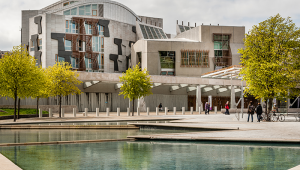
We went on the road for the three main party conferences to find out how concerned politicians are about the state of local government.
Together with CIPFA, PF and Norse Group, we asked if local government is running out of gas.
We found very real concern, but also hope for the future and a desire to find ways to help communities across the country get through the cost-of-living crisis and thrive in the future.
For the Lib Dems, Cllr Chris White – a former Audit Commission official – argued that the Lyons review was wrong about local government’s purpose being placemaking. Instead, it should be care. That view didn’t come up in the other parties. But social care is certainly the top issue for everyone.
Conservative MP James Morris said adequate care costs must be addressed before anything else. For the party’s local government leadership, members wanted a reset of arrangements, but they are realistic enough to know that won’t come in the current political cycle.
There was a lot of realism. Labour is pragmatic. It knows the next election will be fought on the public realm and public services.
The party’s contributors who are likely to become MPs understand it won’t be a land of milk and honey. The long-term problems will still have to be tackled.
The hope is that there will be more joined-up thinking – and having LGA leader Shaun Davies sitting with the shadow cabinet is a big sign of determination to make local government work better.
Do we need an agreement signed between central and local government in place of the current trust-based arrangements?
There was a lot of agreement. All three parties are clear that the current financial envelope cannot change. Welfare and health remain tier-one government responsibilities.
All three want the security of long-term funding and an end to competitive bidding pots. They also don’t want shiny capital projects that they can’t fund through normal means.
The conversations were more about what you can do that isn’t going to cost money but that resets the relationship with central government. One thing that can change is making the money work better at local level.
Local government has more in common at a local and regional level than with central government. Contributors also know it is a great lever for getting things done. But there isn’t clarity about how to get that message across to ministers – and whether that can be done together.
What also emerged is a perception that Whitehall doesn’t have an understanding of local government beyond seeing it as a service delivery arm of central government. And delivery is being approached in a very command-and-control way.
Central government has no understanding of how local authorities function or what systems it has. It’s not just an issue of money.
As a localist, you have to be an optimist. Pessimists are ten-a-penny. What gives me hope is the way councillors and officers work so passionately to ensure a fragmented system is keeping people alive. And, yes, it has become a matter of life and death.
People are working night and day to make a difference. And the ones at the sharp end are having to make difficult decisions. There remains a will to do their best and serve local communities.




















